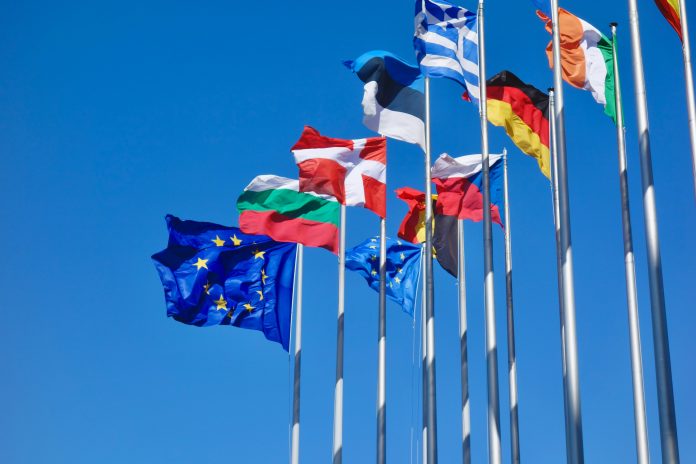Dr. Mitra Rah – Nejat in an interview with the site of Strategic Council on Foreign Relations pointed out to the latest status of sanctions imposed on Russia and stated that President Vladimir Putin and Foreign Minister Sergey Lavrov are among the sanctioned persons. She said:” Banning Russian banks from SWIFT, freezing foreign assets, cutting off key exports to Russia like parts and components with high – tech and microchips, banning the export of dual use commodities by the UK, the EU and the U.S., banning all Russian airliners flights over the U.S., the UK and the EU as well as Canada airspace, banning imports of gold from Russia are among the most symbolic sanctions on Russia by the West”.
Rah – Nejat added:” in a part of sanctions, we witness the banning of commodity exports from the EU to Russia which consist of commodities with advanced technology, certain types of machinery and transport equipment, special goods and technologies required for oil refineries, equipment, technology and services of energy industry, goods and technology related to aviation and space industries, commodities for maritime navigation and radio communication technology, a number of dual use goods like drones and drone software, and encryption tools as well as luxury goods”.
The Associate Professor of Public Policy Making and Political Economy Group said:” import of goods like crude oil and refined petroleum products, with limited exceptions (with time limits of 6 to 8 months) steel and iron, wood, cement, and special fertilizers, sea foods and beverages from Russia are banned. Whereas the present contracts need a period for renewal, sanction on coal imports and other solid fossil fuels also will be applied as of August 2022”.
Having stated that during July 2022, the EU adopted the sixth sanction package contains banning of import, purchase and transfer of Russian crude oil and some petroleum products which will be applied within six months for crude oil and within eight months for other petroleum products, she continued:” however, those countries that import crude oil through pipeline are excluded but 90% of oil imported from Russia are made through seaborne which will be strongly influenced by the new sanction package, and consequently, the Russian incomes will reduce”.
Having reminded that sanction on ten Russian banks and banning them from SWIFT will lead to restrictions in receiving hard currencies and inability to transfer assets to abroad, Rah-Nejat explained:” although Russian banks may continue to make international transactions but that will be costly and will increase the risk rate of financial institutions”.
Having stated that the Russian Central Bank is among important sanctioned entities that is unable to have access to its assets throughout the European union, the university professor said:” before the Russian invasion of Ukraine, foreign currency reserves of the country stood at Euro 579 billion which was used to stabilize the ruble rate. Now, because of the sanctions, Russia is unable to provide financial resources to Russian banks; therefore, it has to sell its gold reserves, which is again coupled with difficulties because of sanctions”.
She continued:” the EU has also banned the sale, supply, transfer and export of Euro banknotes to Russia. Restricting the access of government, Central Bank, legal and real persons and entities in Russia to Euro was aimed at preventing bypass of sanctions”.
The university professor reminded:” other partners like World Bank, European Bank for Reconstruction and Development, Organization for Economic Cooperation and Development (OECD), G-7, Elite Special Team, and Russian oligarchs in implementing sanctions against Russia, and of course, Belarus are cooperating with the U.S. and the EU”.
Perspective of Russian Economy
Having stated that sanctions may not cause the quick and complete collapse of Russian economy but may lead to weakening of Russian economy within a period, Rah – Nejat explained:” the reason to this end must be seen in economic policy makings of Russia since 2014. After annexing Crimea, Russia faced with sanctions that forms the foundation of its new economic policy making. Self – sufficiency in production of basic foodstuffs like grains and dairies, production of raw materials for detergents, reduction of foreign debts, and collecting considerable amount of foreign currencies are among these measures”. In the meantime, she added:” however, as war situation between Russia and Ukraine continues or even if battel fronts extend to East Europe, economic policy making of Russia that temporarily had led to ruble value increase can not remain effective; for example, during the recent years, the Central Bank sharply restricted the exchange with ruble that led to its value increase. Central Bank had set the parity rate for one US dollar against 54 rubles, while without the intervention of the Russian Central Bank and in free market, one dollar is traded between 80 to 90 rubles”.
Having stated that with continued sanctions, the quality of life and production in Russia will be sharply reduced, and a greater market will be formed for Chinese made commodities, the scientific board member of university said:” reviews indicate that Russian economy will be 10% smaller during the first year of sanctions, annual inflation rate will be 20%, retailers will reduce 9% to 10%, selling of cars and GDP will decrease by 85% and 8% respectively”.
Rah – Nejat added:” the continuity of war will make Russian Army face difficulties; because it can not manufacture all requirements that it needs in case of war prolongation. Russian Army has very limited capability to manufacture equipment like tanks, missiles and fighter jets”.










0 Comments